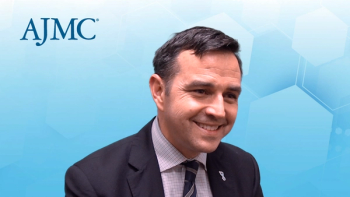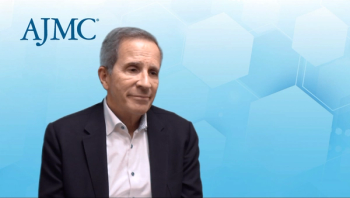
Dr Neeraj Agarwal on Who Can Benefit from PARP Inhibition
Neeraj Agarwal, MD, University of Utah Huntsman Cancer Institute, shares his experience regarding the prostate cancer patients who could potentially benefit from PARP inhibition.
Neeraj Agarwal, MD, a clinician and researcher at the University of Utah Huntsman Cancer Institute, shares his experience regarding the prostate cancer patients who could potentially benefit from PARP inhibition.
Transcript
In your opinion, who is an appropriate candidate for a PARP inhibitor in prostate cancer?
Everyone who has a DNA repair gene defect, or homologous recombination repair defect, is a candidate for treatment with a PARP inhibitor. If we don't identify these patients, we are offering them the alternate treatment, which is chemotherapy. And we know from multiple data sets, larger real world data sets such as flat RM, for example, the real world use of chemotherapy is very low in patients with metastatic castrate-resistant prostate cancer, which basically tells us that our patients in the real world are not really eligible or enthusiastic about receiving chemotherapy in castrate-resistant prostate cancer. How to make them eligible and to maximize eligibility for treatment with PARP inhibitors is the most important question, which can only be answered by testing all our patients to look for these mutations.
Newsletter
Stay ahead of policy, cost, and value—subscribe to AJMC for expert insights at the intersection of clinical care and health economics.









